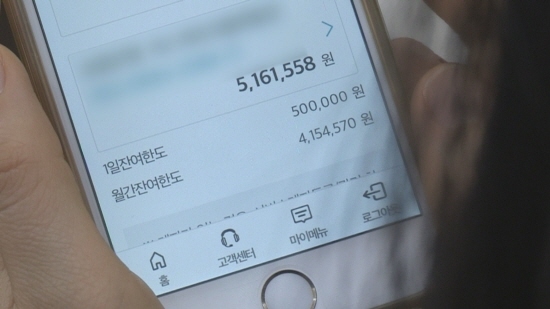Korean banks boost cybersecurity to back digitalization
By Jung Min-kyungPublished : July 5, 2021 - 15:08

South Korean banks are adopting unprecedented measures to boost cybersecurity in a bid to better compete with local fintech firms.
Woori Bank said Monday it became the first lender here to adopt the security orchestration, automation and response technology, or SOAR. SOAR is an advanced set of technologies that enables organizations to automatically collect and file security data.
The latest technology would help upgrade its cybersecurity platform from the previous monitoring-focused system to a more comprehensive one, according to Woori.
On top of it, the flagship lender under the nation’s fourth-largest banking group by market capitalization has been expanding its database and bolstering monitoring of its cloud platform provided by Amazon Web Services.
Another major banking group, KB Kookmin Bank, has been developing its own artificial intelligence-based automatic cybersecurity system, as part of its record-high 551.9 billion won ($488.5 million) investment in information technology services this year.
The lender has also been using a special technology to monitor and spot fake apps that could mislead its customers into thinking they’re using official mobile services provided by KB Kookmin. The technology, provided by local cybersecurity startup Everspin, has prevented more than 10,000 possible cases of phishing and fraud by detecting and deleting such apps in the March-June period, the bank said.
Shinhan Bank and Hana Bank have been taking active steps to adopt and improve blockchain technologies, which could bolster protection against hackings and reduce security gaps.
Shinhan, in the last year or so, has launched three blockchain-related services, including an easy identity verification service for its main mobile app Sol.
In January, the bank signed a deal with local cybersecurity startup Stealien to introduce services that prevents hackers from illegally copying its app.
Hana, meanwhile, adopted blockchain technology in its Hana 1Q app that helps customers better manage their highway toll payments.
With major lenders continuing to upgrade their cybersecurity, the overall cyberattacks on local financial institutions dropped 35.9 percent on-year to some 6.2 million cases as of end-2020, the state-run Financial Security Institute said last month.
But industry watchers have warned that businesses have to constantly update their cybersecurity platforms, especially with the recently revised law pushing traditional lenders to partner up with cryptocurrency exchanges to issue real-name accounts.
Cybersecurity has risen as a key issue for both traditional banks and fintech groups in recent years as customers continue to seek more convenient services that require less face-to-face interaction.
Woori Bank said Monday it became the first lender here to adopt the security orchestration, automation and response technology, or SOAR. SOAR is an advanced set of technologies that enables organizations to automatically collect and file security data.
The latest technology would help upgrade its cybersecurity platform from the previous monitoring-focused system to a more comprehensive one, according to Woori.
On top of it, the flagship lender under the nation’s fourth-largest banking group by market capitalization has been expanding its database and bolstering monitoring of its cloud platform provided by Amazon Web Services.
Another major banking group, KB Kookmin Bank, has been developing its own artificial intelligence-based automatic cybersecurity system, as part of its record-high 551.9 billion won ($488.5 million) investment in information technology services this year.
The lender has also been using a special technology to monitor and spot fake apps that could mislead its customers into thinking they’re using official mobile services provided by KB Kookmin. The technology, provided by local cybersecurity startup Everspin, has prevented more than 10,000 possible cases of phishing and fraud by detecting and deleting such apps in the March-June period, the bank said.
Shinhan Bank and Hana Bank have been taking active steps to adopt and improve blockchain technologies, which could bolster protection against hackings and reduce security gaps.
Shinhan, in the last year or so, has launched three blockchain-related services, including an easy identity verification service for its main mobile app Sol.
In January, the bank signed a deal with local cybersecurity startup Stealien to introduce services that prevents hackers from illegally copying its app.
Hana, meanwhile, adopted blockchain technology in its Hana 1Q app that helps customers better manage their highway toll payments.
With major lenders continuing to upgrade their cybersecurity, the overall cyberattacks on local financial institutions dropped 35.9 percent on-year to some 6.2 million cases as of end-2020, the state-run Financial Security Institute said last month.
But industry watchers have warned that businesses have to constantly update their cybersecurity platforms, especially with the recently revised law pushing traditional lenders to partner up with cryptocurrency exchanges to issue real-name accounts.
Cybersecurity has risen as a key issue for both traditional banks and fintech groups in recent years as customers continue to seek more convenient services that require less face-to-face interaction.


![[Exclusive] Korean military set to ban iPhones over 'security' concerns](http://res.heraldm.com/phpwas/restmb_idxmake.php?idx=644&simg=/content/image/2024/04/23/20240423050599_0.jpg&u=20240423183955)




![[Pressure points] Leggings in public: Fashion statement or social faux pas?](http://res.heraldm.com/phpwas/restmb_idxmake.php?idx=644&simg=/content/image/2024/04/23/20240423050669_0.jpg&u=)

![[Herald Interview] 'Amid aging population, Korea to invite more young professionals from overseas'](http://res.heraldm.com/phpwas/restmb_idxmake.php?idx=644&simg=/content/image/2024/04/24/20240424050844_0.jpg&u=20240424200058)









